Talk Justice: Episode Forty Two
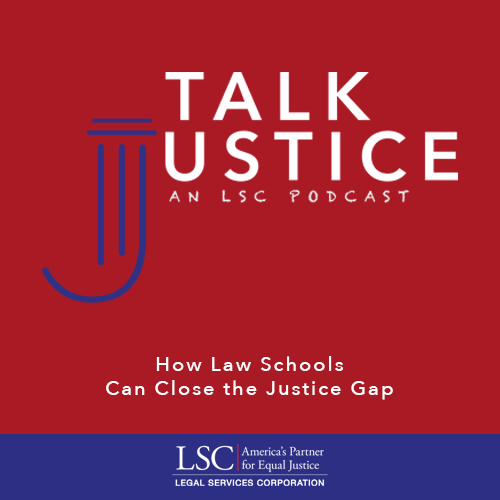
How Law Schools Can Close the Justice Gap
Law school leaders discuss how their academic institutions work towards expanding access to justice on the latest episode of LSC's “Talk Justice” podcast.

Guest Speakers
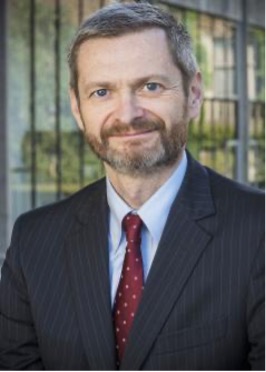
Thomas J. Miles is Dean and Clifton R. Musser Professor of Law at the University of Chicago Law School.
Dean Miles is a leading scholar of criminal justice and judicial behavior and an expert in a wide range of contemporary issues such as race and immigration enforcement. He has been widely published in economics and legal journals, with extensive expertise on such varied topics as judicial diversity, immigration, mail fraud, and wiretapping. His work makes creative use of the tools of law and economics — an approach that originated at the Law School, which maintains leadership in the field through such initiatives as the Coase-Sandor Institute for Law and Economics. Frequently, Miles’s work uses the methods of law and economics to investigate social questions not conventionally thought to fall within that field, such as his recent work with Adam Cox at New York University School of Law that examined how African-American judges tended to decide voting rights cases differently than white judges and that the presence of an African-American judge on a judicial panel also tended to influence how white judges decided the case. Their research was the first to find robust statistical evidence that the racial identity of judges matters in how judicial panels decide cases, and highlighted the importance of diversity on the bench.
Miles has taught a wide variety of courses at the Law School including securities regulation, federal criminal law, economic analysis of law, and empirical law & economics, as well as first-year criminal law and tort law. In 2009, he received the Graduating Students Award for Teaching Excellence.
Before joining the faculty, Miles was the Olin Fellow in Law and Economics at the Law School. He has served in several leadership roles during his time on the faculty, including chairing the appointments committee and the accreditation review committee.
Miles received his Ph.D. in economics from the University of Chicago and his J.D. cum laude from Harvard Law School. Upon graduation, he served as a law clerk to the Hon. Jay S. Bybee of the U.S. Court of Appeals for the Ninth Circuit. From 2005 to 2013, Miles was an editor of the Journal of Legal Studies. He graduated summa cum laude with a B.A. in political science and economics from Tufts University.
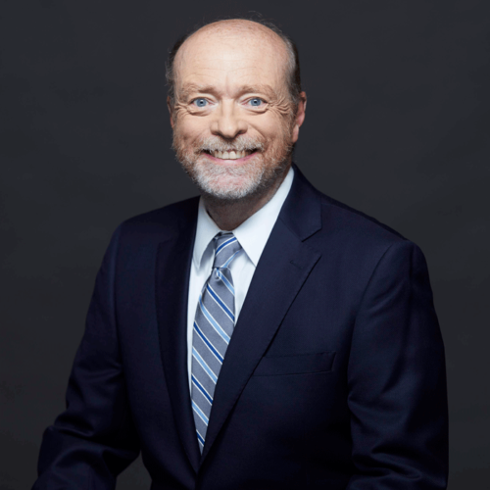
William Michael Treanor is the Dean and Executive Vice President of Georgetown University Law Center. Dean Treanor joined Georgetown as Dean in 2010 and began his second term in 2015. Under his leadership, Georgetown Law has hired 39 new tenure or tenure-track faculty members and almost tripled the total number of educational opportunities in clinics, practicums, and externships. During his tenure, Georgetown Law has doubled financial aid and experienced its most successful era of fundraising, culminating in a record year of over $40 million in giving in 2019.
In 2012, Dean Treanor was recognized by the National Law Journal as a “Champion” because of his work to “uphold the profession’s core values,” and in the same year he received the 2012 David Stoner Uncommon Counselor Award from the David Nee Foundation for his efforts to raise mental health awareness among law students. National Jurist magazine has named him one of the most influential people in legal education four times.
Dean Treanor’s areas of expertise include constitutional law, property, land use, criminal law, intellectual property, and legal history. University of Chicago Law School’s Brian Leiter has recognized Dean Treanor as one of the ten most-cited legal history scholars in the United States, and Dean Treanor’s article, “The Original Understanding of the Takings Clause and the Political Process,” 95 Colum. L. Rev. 782 (1995), is the most cited land use article of the past thirty years. At Georgetown Law, he has taught a first-year legal justice seminar and an upper-level course on the drafting of the U.S. Constitution.
Before coming to Georgetown, he was Dean and Paul Fuller Professor of Law at Fordham Law School, where he began teaching in 1991, and he twice taught as a Visiting Professor at the Sorbonne. Dean Treanor also served in a variety of positions in the government, including Deputy Assistant Attorney General in the Office of Legal Counsel, U.S. Department of Justice; Associate Counsel, Office of Independent Counsel during the Iran/Contra investigation; Special Assistant U.S. Attorney in the District of Columbia United States Attorney’s Office; Special Assistant to the Chair of the New York State Commission on Government Integrity; and Speechwriter for the United States Secretary of Education. He was law clerk to the Honorable James L. Oakes, U.S. Court of Appeals for the Second Circuit. Dean Treanor has a Ph.D. in history from Harvard University, a B.A. from Yale College (summa cum laude), and a J.D. from Yale Law School.
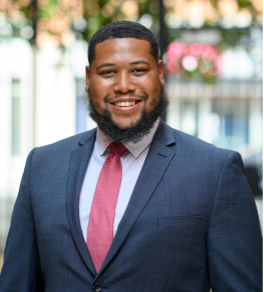
Miguel Willis is the Innovator in Residence at the Law School’s Future of the Profession Initiative (“FPI”). Miguel concurrently serves as the Executive Director of Access to Justice Tech Fellows (“A2J Tech Fellows”), a national nonprofit organization that develops summer fellowships for law students seeking to leverage technology to create equitable legal access for low-income and marginalized populations. Immediately prior to joining FPI, Willis served as the Law School Admissions Council’s (“LSAC”) inaugural Presidential Innovation Fellow.
Willis earned a degree in Political Science from Howard University.
While completing his undergraduate degree, Willis worked with the Department of Justice’s Office of Immigration Litigation. He is a 2017 graduate of the Seattle University School of Law. Following law school, Willis held posts at the City of Seattle, Office of Immigrant & Refugee Affairs, where he assisted on legal content and strategy for the creation of a Citizenship web portal. During this time, he also worked with the Alaska Court System, to develop its Justice for All Project.
Willis’ entrepreneurial spirit, drive to innovate, and commitment to diversity and access to justice earned him recognition by the American Bar Association as a 2018 Legal Rebel, and 2019 Fastcase 50” honoree.
Willis currently serves on the advisory board of University of Arizona James E. Rogers College of Law’s Innovation for Justice (i4J) program. In addition, to serving on The Legal Services Corporation’s Emerging Leaders Council.
Moderator
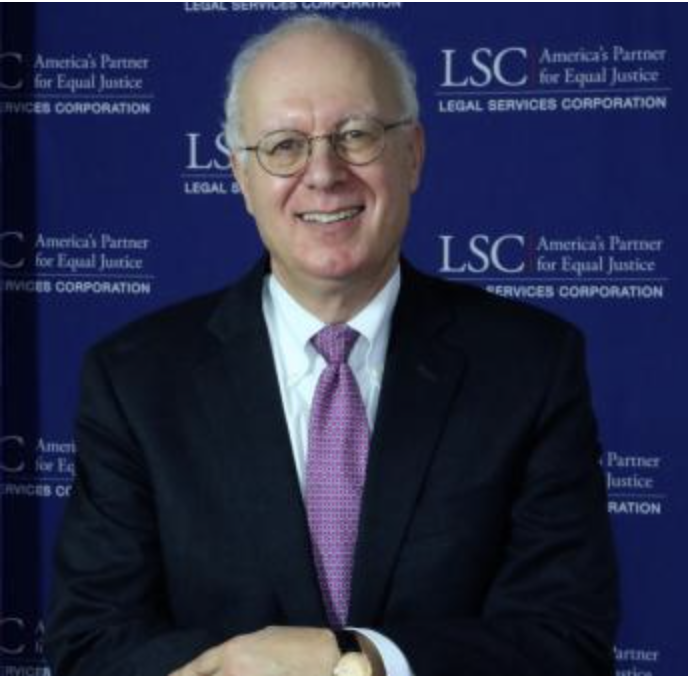
Ronald S. Flagg was appointed President of Legal Services Corporation effective February 20, 2020, and previously served as Vice President for Legal Affairs and General Counsel since 2013. He previously practiced commercial and administrative litigation at Sidley Austin LLP for 31 years, 27 years as a partner. He chaired the firm's Committee on Pro Bono and Public Interest Law for more than a decade.
Flagg served as president of the District of Columbia Bar in 2010-2011 and currently serves as Chair of the Bar's Pro Bono Task Force and on the Board of the DC Bar Foundation. He previously also services as Chair of the Board of the National Veterans Legal Services Program, Chair of the District of Columbia Bar Pro Bono Center, Chair of the Board of the AARP Legal Counsel for the Elderly, and as a member of the American Bar Association's House of Delegates, the Board of the Washington Lawyer's Committee for Civil Rights and Urban Affairs, and the District of Columbia Judicial Nomination Commission.
Flagg graduated with honors from the University of Chicago and cum laude from Harvard Law School. He began his career as a law clerk to Judge Myron L. Gordon, U.S. District Court of the Eastern District of Wisconsin and as attorney-advisor in the United States Department of Justice, Office of Intelligence Policy.





